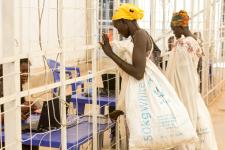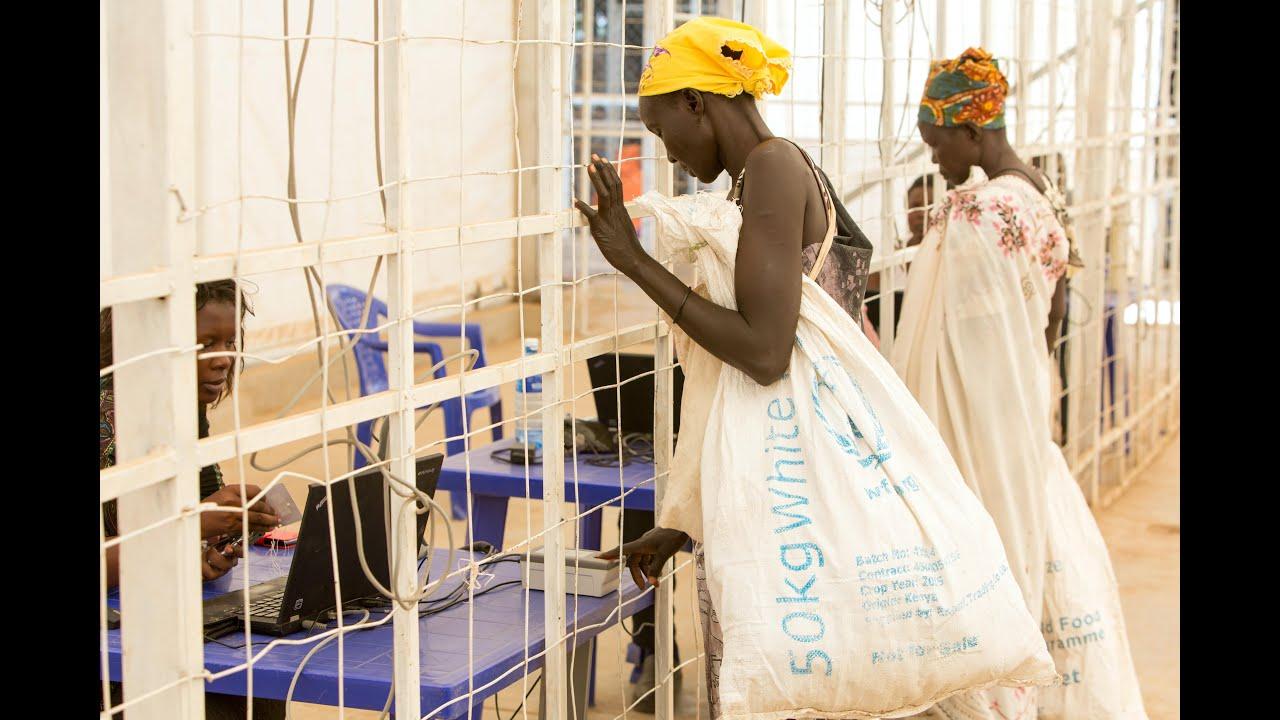Livestreaming
Data extractivism and humanitarian response: algorithms and predictive modeling

Watch the recording here
Growing interest in advanced data-driven technologies are not limited to private entities but pertinent in humanitarian and non-profit organisations, who increasingly focus on the application of data-driven humanitarian response. While algorithms for predictive analysis are considered a particularly promising tool for contemporary digital humanitarianism, the training of those algorithms require large data sets. Increasingly, humanitarian organisations and collaborating agencies themself harvest and analyse data they 'extract' from the humanitarian contexts and people of concern.
While the extraction of data is not a new mechanism to support, monitor, and evaluate humanitarian response, especially when mitigating and predicting potential risks for people of concern, the aspect of digitising those processes carries novel risks relating to the organisations' accountability and risk mitigation as part of the code of conduct for their humanitarian practice. This session invites Alexander Kjærum (Danish Refugee Council) and Emil Brøgger (Danish Red Cross) to discuss their organisations' application of data-driven tools and algorithms for predictive analysis and how they consider, navigate, and circumvent unintended consequences or harmful outcomes from a practitioner's point of view.
Speakers
Alexander Kjærum, Global Advisor and Senior Analyst, Danish Refugee Council
Emil Brøgger, Information Management Advisor, Danish Red Cross
Sarah Seddig, PhD Fellow, Research Unit 'Peace and Violence', DIIS
Programme
14.45-14.50 Introduction, Sarah Seddig
14.50-15.10 Presentation, Alexander Kjærum
15.10-15.30 Presentation, Emil Brøgger
15.30-16.00 Panel discussion, facilitated by Sarah Seddig
16.00-16.30 Q&A, facilitated by Sarah Seddig
The seminar was held and recorded on 11 September 2023, 14.45-16.30 in DIIS Auditorium.
This seminar is part of the DIIS seminar series DATA EXTRACTIVISM AND GLOBAL INEQUALITY.
The collection of data about people’s everyday lives and the extraction of value from this data has become a central feature of day-to-day operations by businesses, governments and non-governmental organisations alike who use algorithmic and data-driven tools. Data extractivism – a term coined in decolonial studies – situates the largescale collection of data we experience today in a long history of capitalism and colonialism. As such, contemporary data practices are seen as the continued extraction of value from human and ecological resources now through the harvesting of data. Rather than mediating inequalities, many of such data extracting schemes might be fueling inequalities across the globe. But what kinds of value are extracted from big data and for whom? And how can we study the practices, infrastructures, and implications of data extractivism through qualitative and/or ethnographic methods? Technological complexity, nondisclosure agreements, and the private ownership of digital infrastructures often prohibit detailed insights into the operation and use of algorithms and big data. Opening new fields of inquiry, the black box of data extractivism, requires reflection on novel methods. But how can we understand the quantification of people’s lives beyond quantitative methods?
The seminar series Data Extractivism and Global Inequality sheds light on the diverse ways in which contemporary data practices and infrastructures are linked to historic and global inequalities and how they can be approached methodologically. Between September and December 2023, practitioners and researchers whose work addresses data extraction in areas such as digital humanitarianism, microcredit programmes, algorithmic credit assessment and welfare policies will join us to discuss the ways in which data extraction mitigates, enforces or produces forms of inequality.
The seminar series is part of the DIIS TECH research initiative on technology and power.
Sign up
DIIS Experts



